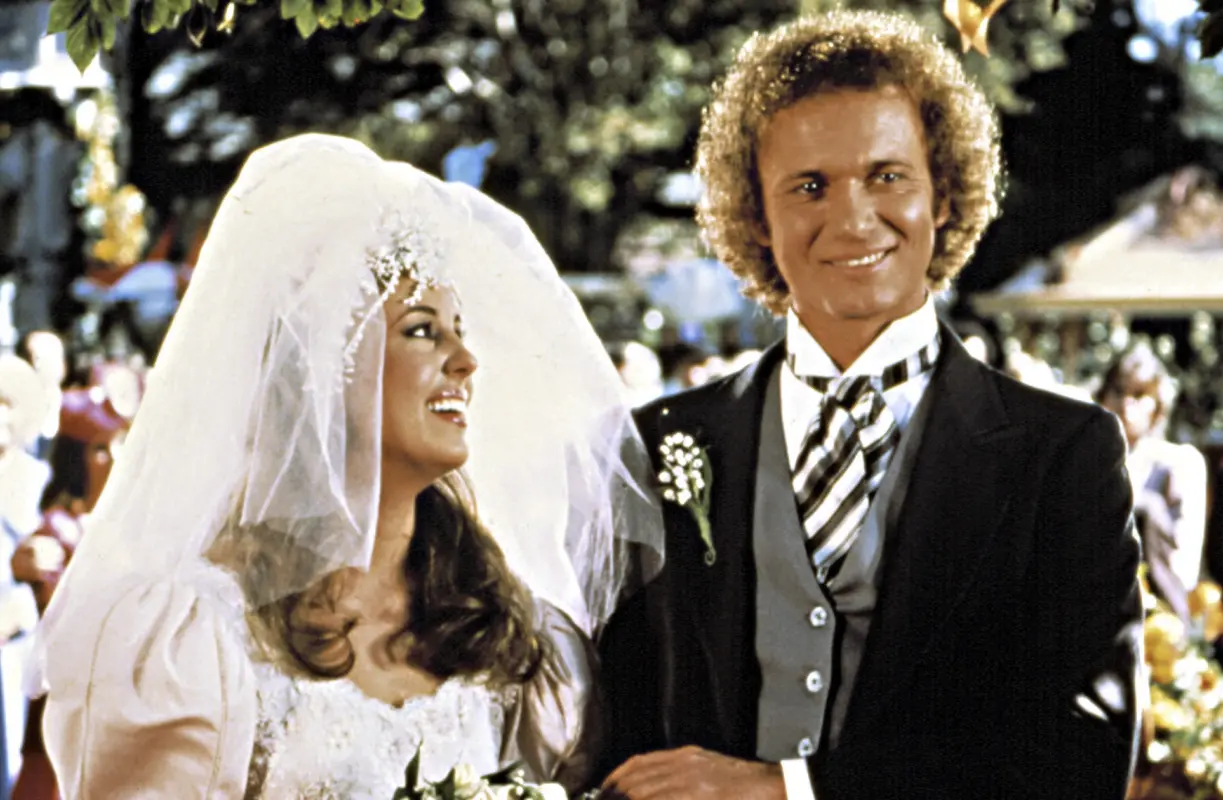Needle Drop: General Hospital Did As Much For Early 80s Pop Music As MTV
-
 Genie Francis and Anthony Geary on General Hospital (Photo: ABC)
Genie Francis and Anthony Geary on General Hospital (Photo: ABC)Welcome to Needle Drop, our ongoing series about crucial pop music moments on TV. It's brought to you by Mark Blankenship, Primetimer's Reviews Editor and the co-host of the pop music podcast Mark and Sarah Talk About Songs.
Forty years ago this month, "Baby, Come to Me" was released as a single and nobody cared. That's surprising in retrospect, because the ingredients for success were certainly there: The song was written by Rod Temperton and produced by Quincy Jones, who had already collaborated on classics like Michael Jackson's "Rock With You" and George Benson's "Give Me the Night." It had a sultry R&B groove, and it was sung with quiet storm urgency by James Ingram and Patti Austin. In the spring of 1982, however, it couldn't get past number 73 on the charts.
As it turned out, all "Baby, Come to Me" needed was General Hospital.
In the early 80s, General Hospital was more than just a successful daytime soap opera -- it was a cultural force. Tens of millions of people watched it, talked about it, and obsessed over it. This was especially true for stories involving Luke (Anthony Geary) and Laura (Genie Francis), whose relationship set the template for every super couple that followed. Even watching grainy old clips on YouTube, the chemistry between Geary and Francis still shines through. It makes sense that people would care about them.
With a television audience so invested these characters, it's only natural that their most heightened moments would land with even more force. And that meant that even the songs playing underneath those moments took on extra significance. For Luke and Laura, this was true even when the circumustances were horrifying. In the late 70s, when Luke sexually assaulted Laura at a disco, Herb Alpert's "Rise" was playing in the background. That's a grotesque association, but there's no denying that the tune is linked to an emotionally powerful moment. And in 1979 that helped "Rise" reach number one on Billboard's Hot 100. (We'll let other writers deal with the fact that Laura eventually married her attacker.)
By late '82, Francis had taken a break from the show, but Geary was still there and fans were still enthralled. (This writer remembers his babysitter talking about Luke all the time.) Therefore, when he got tangled in a love affair with a woman named Holly (Emma Samms), people got invested. And when "Baby, Come To Me" became their love theme, people listened. Months after it tanked, the single returned to the charts, and by early 1983, it was number one.
Re-watching one of the scenes that introduced the song, it's obvious why it resonated with viewers. Its lyrics are about people submitting to passion, and its vibe is gently seductive. By contrast, Luke and Holly are distraught as they stand on that pier. They can't quite trust each other — for various reasons — but they want to. The song is the sound of the happy ending they haven't attained. If the same scene were soundtracked with something more bombastic and heartbroken like Juice Newton's "Angel of the Morning," it might have felt devastating. Instead, "Baby, Come to Me" gave us hope.
Similarly, when Genie Francis returned to the show a few months later, Christopher Cross's ballad "Think of Laura" was the ideal accompaniment. Beyond referencing the name "Laura" about a hundred times, it has a wistful melancholy that matches Luke and Laura's fraught reunion. Even though it was written about a college student who was accidentally killed and wasn't even supposed to be a single, it became a smash anyway, peaking at number nine in 1984.
In the midst of these "Luke and Laura hits", General Hospital cast members Jack Wagner and Rick Springfield sent songs of their own up the charts, but that's not quite the same thing. Plenty of people have leveraged their success on TV to crank out an album or two, but it's incredibly rare for fictional characters to generate hit after hit after hit. Then again, it's rare for characters to be as popular as Luke and Laura. For a few years, they made General Hospital almost as important to American music as the radio.
Mark Blankenship has been writing about arts and culture for twenty years, with bylines in The New York Times, Variety, Vulture, Fortune, and many others. You can hear him on the pop music podcast Mark and Sarah Talk About Songs.
TOPICS: General Hospital, ABC, Anthony Geary, Genie Francis, Needle Drop
- What happened on General Hospital today? Recap for December 23, 2025
- General Hospital spoilers: Donna makes a shocking discovery, Britt faces pressure, and Cody panics over a delayed package
- “Jason deserves better” — General Hospital fans slam Britt’s return and her treatment of Jason
- General Hospital spoilers: Willow’s trial resumes, Portia’s secret at risk, and Chase gets devastating news